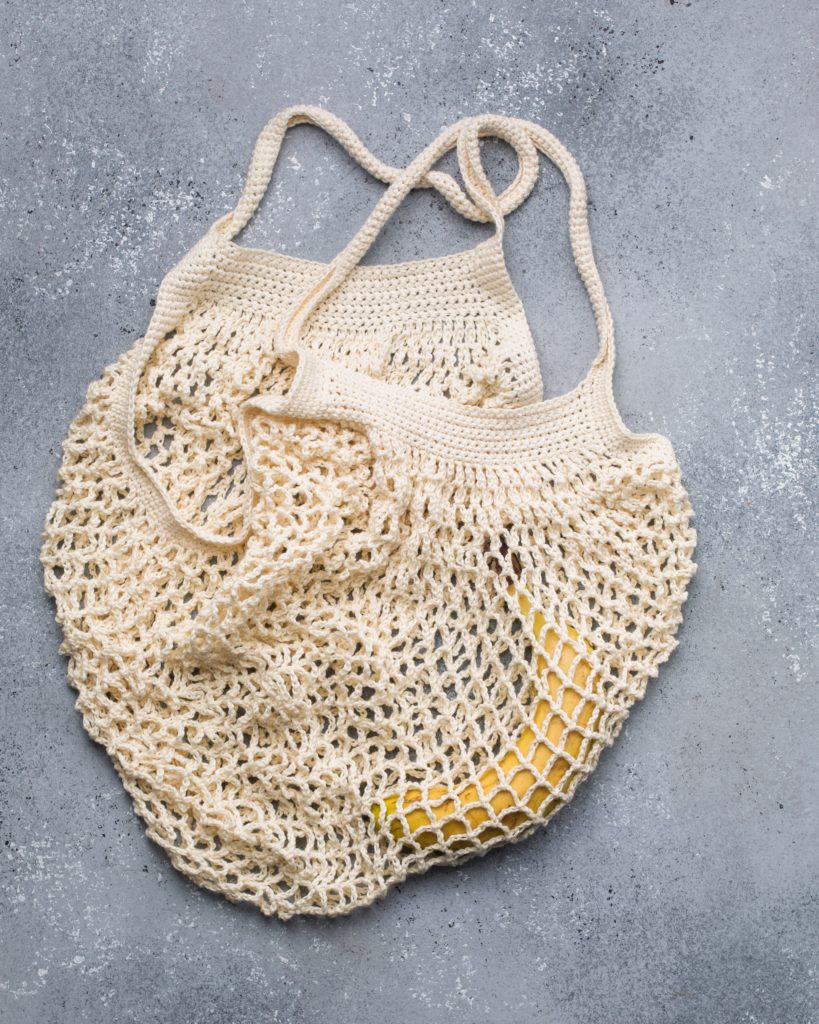Many different news headlines and events have forced us all to reconsider our relationship with the planet. Most of us want to do better, in as many ways as possible, including reducing the amount of plastic we use.
Plastic is a huge pollution problem, and most notably highlighted by Blue Planet, is totally wrecking marine environments.
If you would like to do better by the earth and reduce your plastic use at home, that’s great news. You’ll find there are loads of ways to use less plastic by adjusting a few things. Unsure where to start? Here are our best tips to help you reduce the amount of plastic you use at home:

Buy Loose Fruit & Vegetables
So much plastic is used to net and package fruit and vegetables, and it is often not the recyclable kind. If you can, buy loose fruit and veggies in the supermarket. Even better, take your recycling bag and buy your fresh produce at the local grocers. It is likely to be locally sourced, and the prices are often competitive with the supermarket too.
Try To Use Zero Waste Stores
Zero waste stores are catching on that they need to be competitively priced, compared with supermarkets, in order to be accessible. Now, you can fill up on many household items and food types, with brown paper bags, or your own containers. Common products stocked by zero waste stores include:
- Flour
- Dried legumes & beans
- Cereals
- Dried fruits and nuts
- Seeds
- Laundry liquid
- Shampoo, conditioner & soaps
- Washing up liquid
Try Using Plastic-Free Storage Items
Cling film is a common food preservation and storage item that is throwaway and bad for the environment. Freezer bags, sandwich bags, bin liners and plastic food product containers are all generally bad news but, don’t worry, there are plenty of handy storage hacks. Try to purchase from companies that offer products in alternative packaging, like cardboard boxes. Use alternatives to cling film, like beeswax wraps and reusable container covers and lids.

Reuse Containers You Do Buy
Try to reuse containers you do buy to give them a longer life. Rather than buying new plastic tumblers, wash and reuse different shaped glass jars. Reuse spray and liquid containers for product refills. Rather than buying new plastic replacements, have a rummage around your storage units and see what you already have that can be used. The more you avoid buying new items, the better.
Recycle & Compost
The more you can recycle and compost, the less you will have to use bin bags and throwaway, and the less goes into landfill overall. Try to be as stringent as you can with recycling, ensuring you follow all the local council rules. With composting, you only need a very small container to give it a go, producing your own garden fertiliser and growing medium, with the items you would usually only throwaway.
Change Your Cleaning Habits
With cleaning, we can often use up bags and plastic containers full of spray, plastic sponges and scourers, without thinking about it. When you are cleaning your home, try to use alternatives to your usual cleaning gear.
DIY cleaning solutions in reusable bottles are a great idea, and often contain less chemicals too. Consider natural fibre brushes for scrubbing, and think twice before throwing away perfectly usable plastic items you already use. It’s about replacing what is often disposable with more sustainable and eco-friendly choices and giving items a longer life that we would usually just throwaway.
Being more plastic-free is a long-term journey in a world where everything seems to have some sort of plastic in it, or around it. The fact is, you’re trying and that’s an amazing thing. If we all tried a little bit more, to use a little bit less plastic, the world would definitely benefit.






I like the tumblers. They’re handy and at the same time prevent the usage of plastics. Loving the eco-friendly choices is the best!